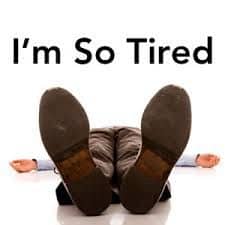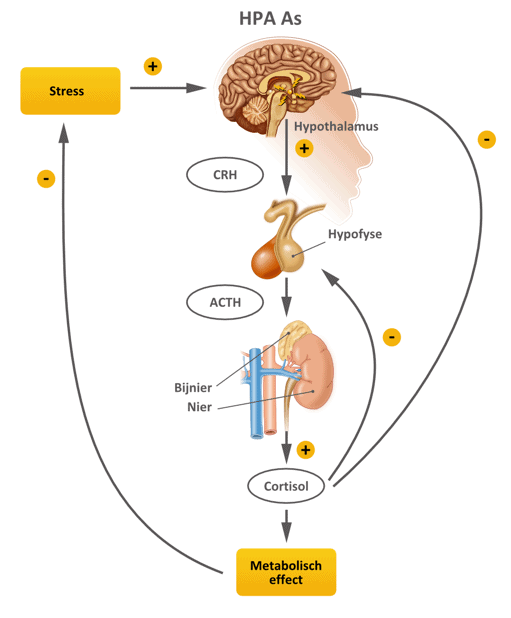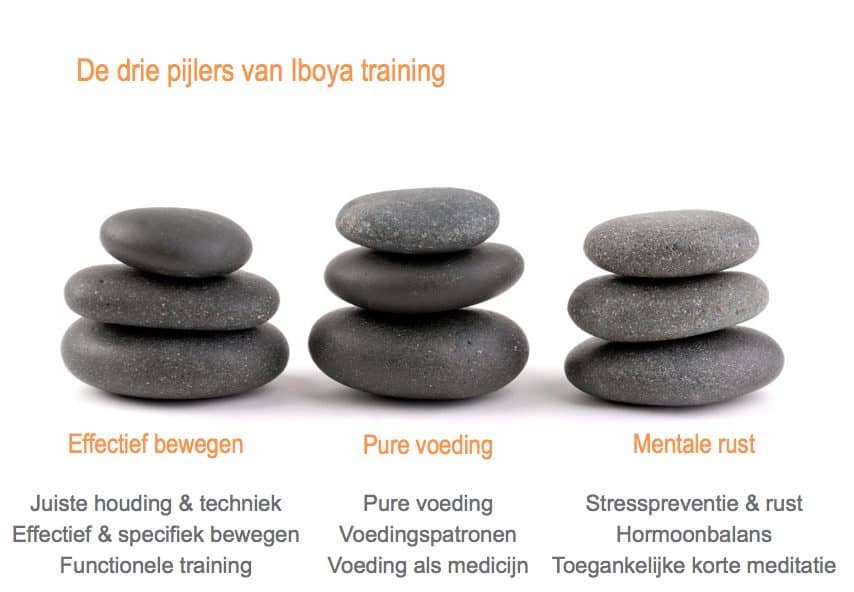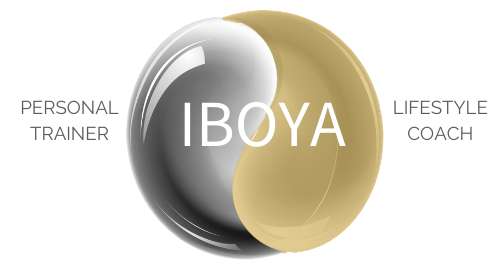How the right approach and lifestyle can prevent a burnout

It has happened to all of us. You no longer have the energy to do your job well or to perform other activities. Everything seems too much to you. A burnout does not just happen, but is often the result of going beyond your limits for a long time. And this often happens without you realizing it. There are vague complaints, but a burnout is not recognized. Think of fatigue complaints, stress, depression and intestinal complaints and much more. You will then be prescribed antidepressants for this. However, this usually only helps temporarily, as the real cause – the core of the problem – is not addressed.
In this article I would like to take you on a quest for the development of burnout. We start with stress factors and the effects they have on your body, which can eventually lead to a burnout. Then I give a glimpse of how a burnout can be effectively tackled or prevented. And finally, I give you 8 important tips for a healthier lifestyle. If you have more questions after reading this article, or if you recognize yourself in the image described, please do not hesitate to contact me.
What is Stress?
Stress is a known phenomenon for everyone. How the body deals with this is something that many people do not know.
Stress, for example, feeds the unfavorable intestinal bacteria, which can make them predominate. When bad gut bacteria become predominant, the absorption of nutrients is greatly reduced. This can cause the body to think that it is not getting enough nutrients. Subsequently, a fat reserve is built up, hormones are not produced properly and candida can develop. In addition, stress can also cause the intestinal wall to leak and proteins and waste products to enter the bloodstream. This can cause inflammation in the body again. Stress also causes a blood sugar spike, so that more fat storage hormone insulin is required and fat is stored in the abdomen.
Two types of stress can be distinguished, short-term stress and long-term stress. Short-term stress is regulated by the autonomic nervous system; long-term stress is regulated by the HPA axis and by neurotransmitters. The abbreviation HPA stands for Pituitary Pituitary Adrenal Gland. In Dutch this means Hypothalamus Pituitary Adrenal cortex.

The autonomic nervous system
There are two main regulators of the autonomic nervous system. These are the sympathetic and the parasympathetic. These regulators work autonomously and are not under the influence of the Will. The sympathizer is the accelerator of the body and is aimed at survival or the fight / flight response. The body prepares to fight or to flee. In stress, the sympathetic comes into action by producing adrenaline and a number of things happen in the body:
Energy is released from glucose and blood pressure and heart rate go up. The hairs stand up, muscles become tense, senses sharpen, pain sensitivity decreases. The blood is mainly pumped to the muscles to escape and at least to the intestines. This is also the reason why the digestive system cannot function optimally during stress.
Once the stress is under control, the parasympathetic nerve is activated by the production of endorphins. This ensures repair and brings the body back to normal.
The HPA axis and neurotransmitters
The HPA axis, along with the neurotransmitters, plays a major role in long-term stress and has a much slower response to stress. If the body constantly releases a response of stress, including via the autonomic nervous system, then long-term stress is involved. This is also referred to as chronic stress.
In this situation the mechanism of the HPA axis is loaded. This works as follows. The stress stimulus that enters through the hypothalamus produces cortisol-releasing hormone (CRH). CRH stimulates the anterior lobe of the pituitary gland to produce the hormone adrenocorticotropic (ACTH), a tropical hormone that in turn stimulates the adrenal cortex to produce cortisol. When there is enough cortisol in the system, the hypothalamus that caused the stress response is turned off again. This is very important because cortisol increases blood sugar and more insulin is needed. And the more insulin is needed, the more fat storage in the abdomen. The risk of diabetes, adrenal fatigue and hormone imbalance is increased.
Cortisol performs even more important functions in the body. In addition to increasing blood sugar, cortisol has an anti-inflammatory effect, suppresses the functioning of the immune system and regulates blood pressure. In addition, cortisol ensures that we wake up, our alertness and focus are optimized and encourages exercise.
How does stress arise
In prehistoric times people got stress when they were attacked by a buffalo or when there was not enough food available. The body does not distinguish between different types of stress stimuli. For every unknown stimulus, an alarm signal is sent to the hypothalamus with the result that the sympathetic and HPA axis engage.
Today there are many more factors that cause the body to experience stress. Consider, for example, sweeteners, E numbers and additives in food, but also drugs, mental stress, anxiety, lack of sleep and exorphins. Exorphins are substances formed from gluten, milk, protein, casein, soy, spinach and certain fungi. They have a morphine-like effect, which gives them a very pleasant feeling and can therefore provoke a kind of addiction to these substances. Exorphins inhibit the body’s own endorphins.
There is a temporary happy or calming feeling after consuming, for example, bread, pizza, milk, cheese, pasta, cookies, ice cream, but this feeling is short-lived. After this you fall back into an even deeper valley.
The burnout
Chronic stress can lead to burnout. A burnout is characterized by mental, physical and emotional exhaustion. There is no involvement with the work or with people with whom they work. Often there is a feeling of insecurity and diminished competence and perhaps even a low self-esteem. In addition, there is little ability to concentrate to work very specifically.
It often starts with complaints such as being tired, feeling uncomfortable and feeling rushed, tense. Sleeping problems also develop and people quickly become irritated. Often the sense of work or social contacts disappears.
It often happens that people who get a burnout are perfectionist and have a great sense of responsibility. They like to be in control of everything and have difficulty setting boundaries. This often involves great uncertainty and fear of failure.
There are many situations and circumstances that can lead to burnout. Possible causes are long-term pain stimuli, great grief about the death of a family member or loved one, long-term (too) heavy work pressure and being in a job that you don’t like for too long. Many people take on too much work. Or often go to bed late. Being a perfectionist and setting high standards for yourself because you’ve learned in the past that this is how you’re going to be successful. But a bad lifestyle, not taking rest and time for yourself or exercising too much for a long time can also lead to a burnout.
Prevent or cure a burnout
Preventing or curing a burnout must be tackled integrally in terms of nutrition, supplemented with supplementation, mental rest and the correct dosage of training. The basis for this are also the three pillars on which the Iboya training method is based. Stress reduction is an important factor in this.

Tackling burnout is very complicated and requires a holistic approach. Finding the root causes of the burnout is essential. All aspects must be approached in a comprehensive manner, including:
- Lifestyle adaptation
- Pure, healthy, base-forming nutrition supplemented with extra supplementation that optimizes the adrenal glands.
- Orthomolecular therapy (see also http://www.mbog.nl/orthomoleculaire-geneeskunde)
- Mindfulness exercises
- Meditation exercises
- RET (a method to put things into perspective)
- Different forms of breathing exercises
- The right way of training – Short and effective exercise
The above provides an optimal basis for a quick recovery. In addition, with this approach, the chance of a recurrence of a burnout will be nil.
8 tips to prevent burnout
The following tips will help you avoid burnout.
- Do not drink alcohol, coffee or tea after 18:00 pm.
- Try to go to bed before 23 p.m. and sleep between 00 and 7 a.m. Make sure that you no longer use a mobile phone, tablet or laptop or watch TV for at least an hour before you go to sleep. Instead, do a sleep meditation to clear your mind. Very good meditations can be found on the following Youtube Channel.
- Make more time for fun things try to find a good balance between things you have to do and things you want to do. Take time for your most important relationships to do something fun together.
- Don’t take yourself too seriously learn to love yourself and others. It is important to live your life in a pleasant and positive way.
- Learn to balance.
- Do not stay in a situation that only costs you a lot of energy
- Enjoy and live in the moment and live your dreams!
- Finally, reduces the intake of sugars, trans fats and avoids E numbers, additives and allergens. So eat fresh and prepared yourself as much as possible.
If you would like to know more about this subject as a result of this article, please contact me at info@iboyatraining.com or call 06-26058512.
If you recognize certain symptoms in your own situation, do not wait too long and take immediate action. I am happy to help you tackle a (possible upcoming) burnout at the source and switch to a healthy lifestyle.
Iboya Triz – Integral Personal Trainer Amsterdam





